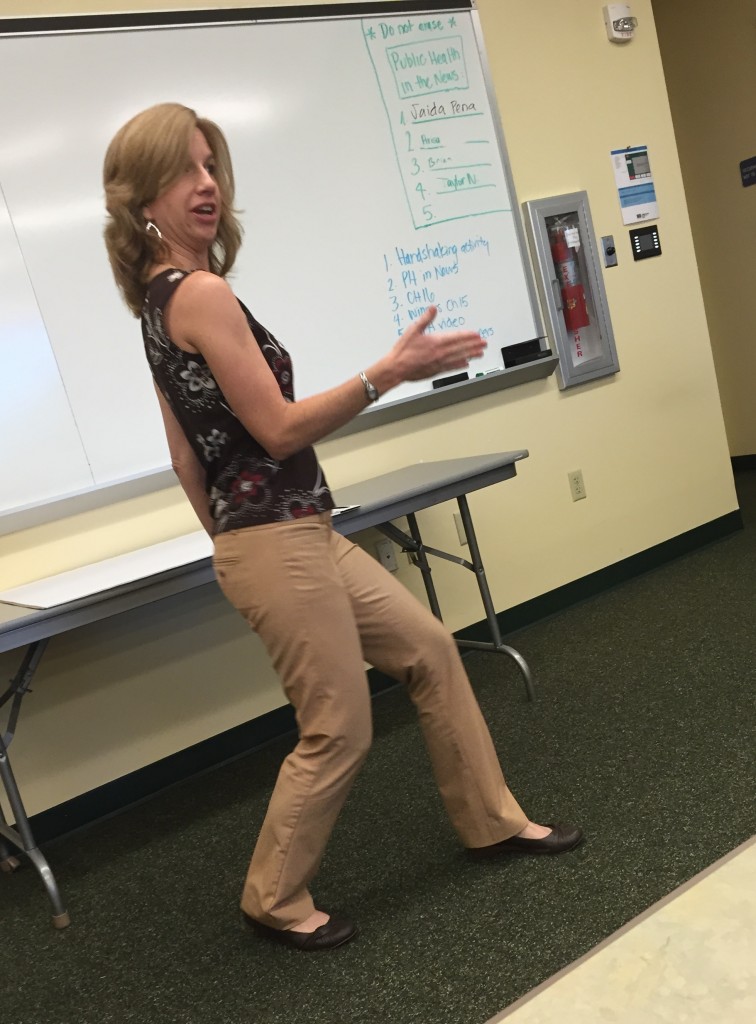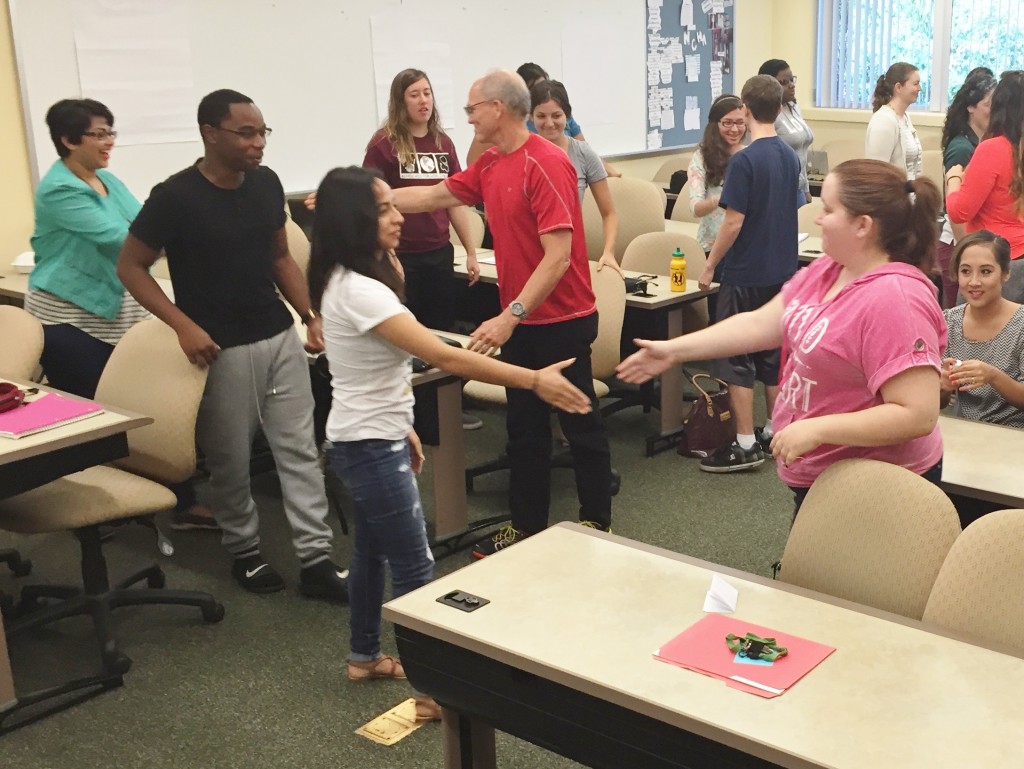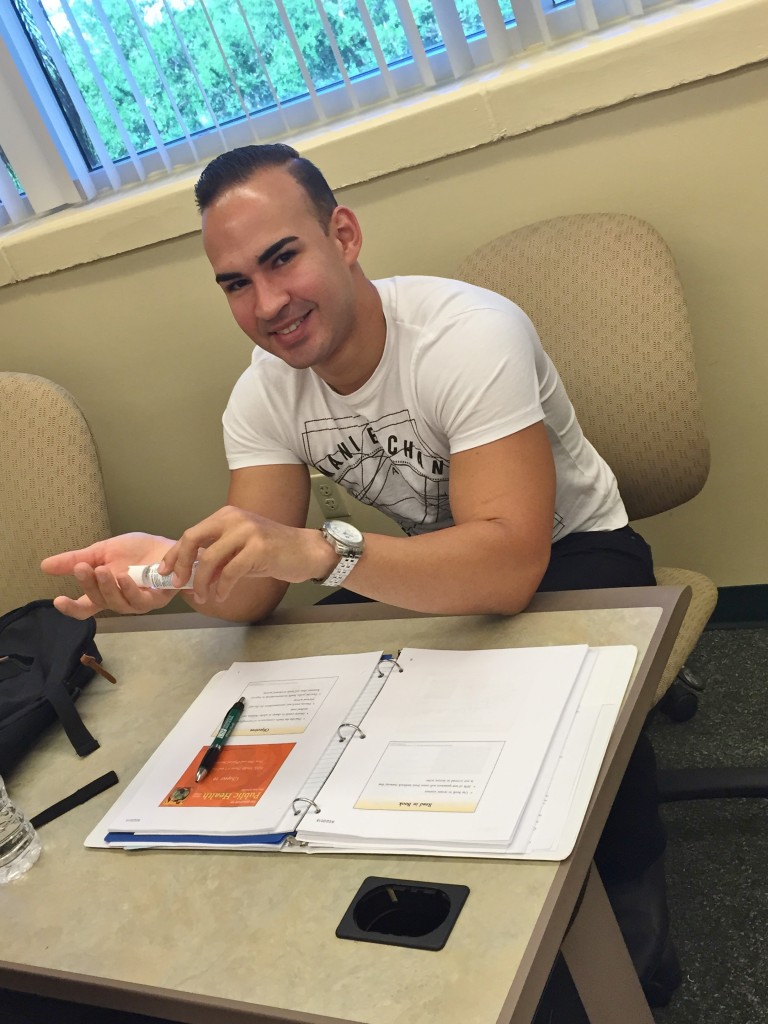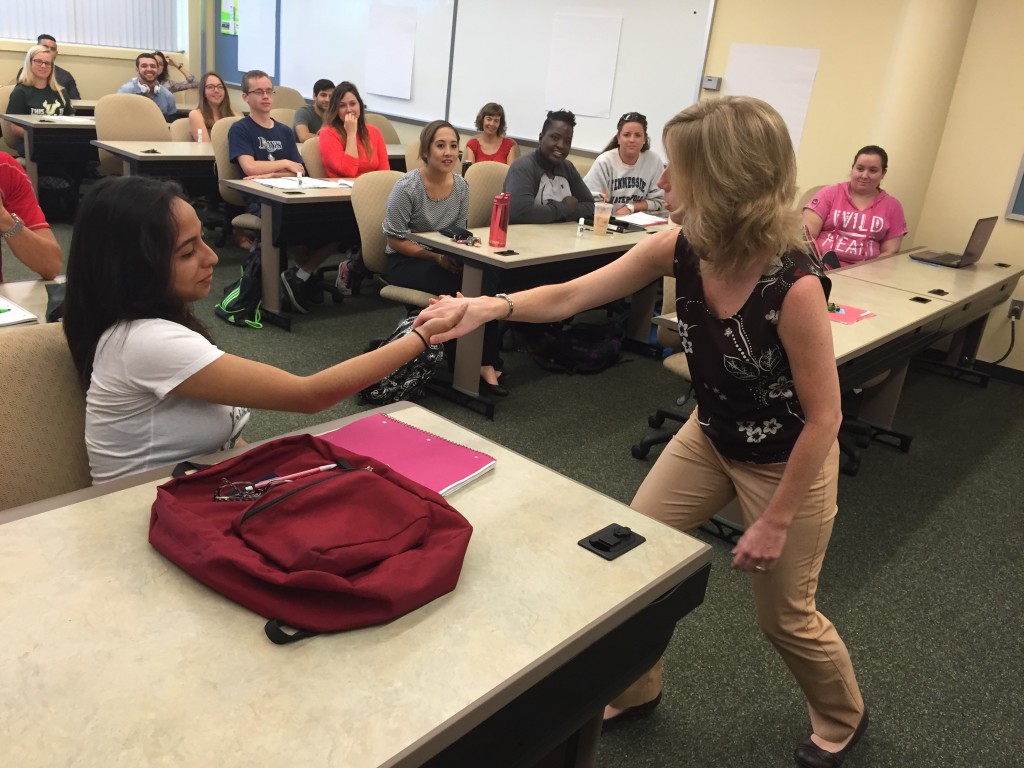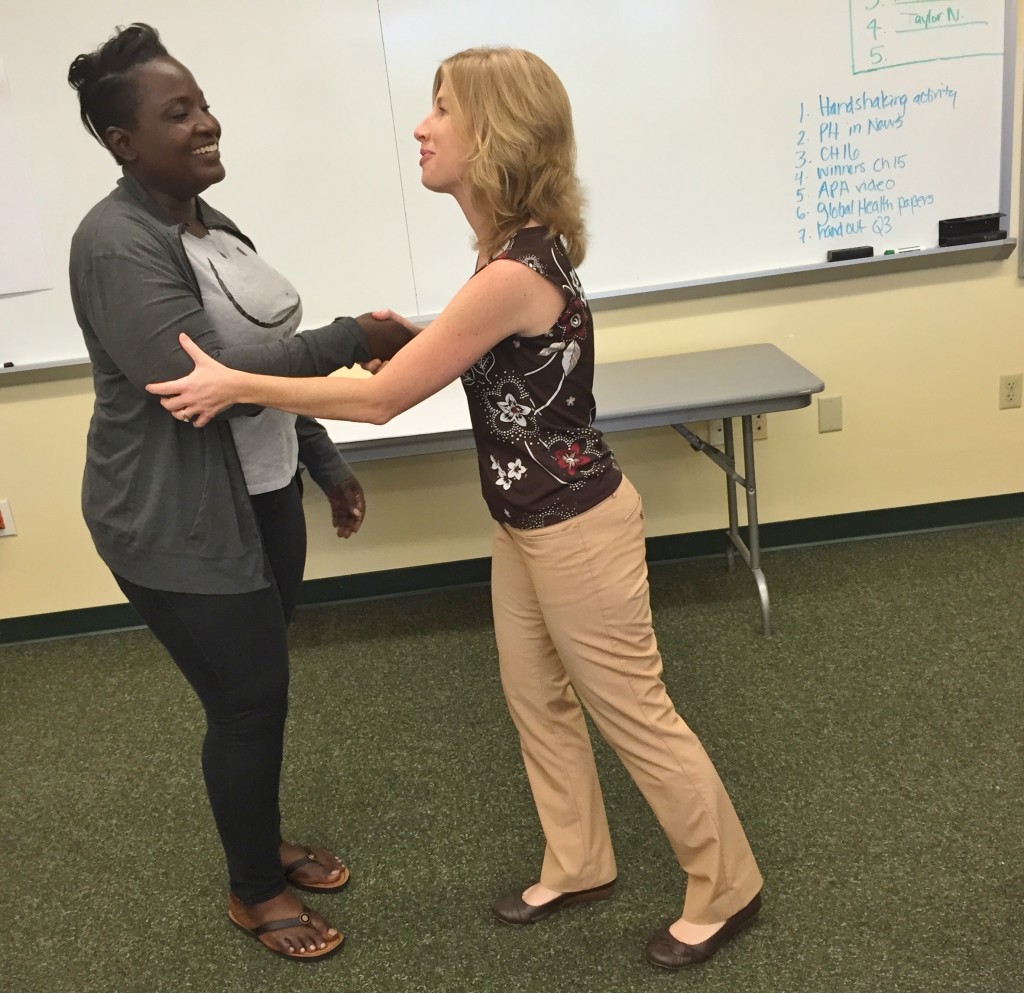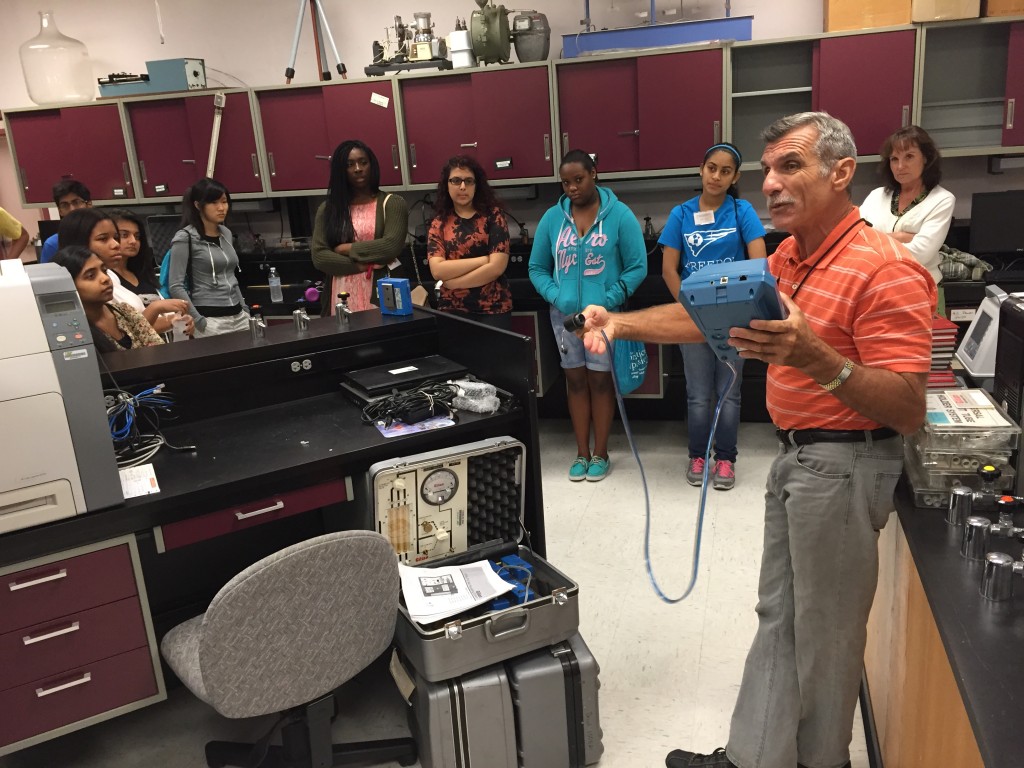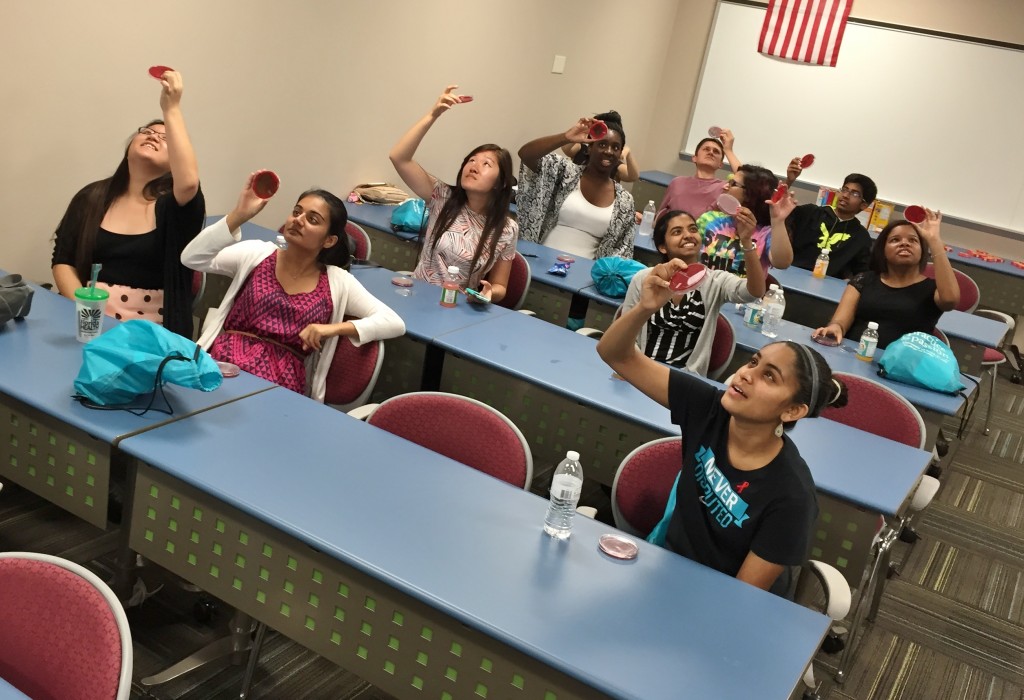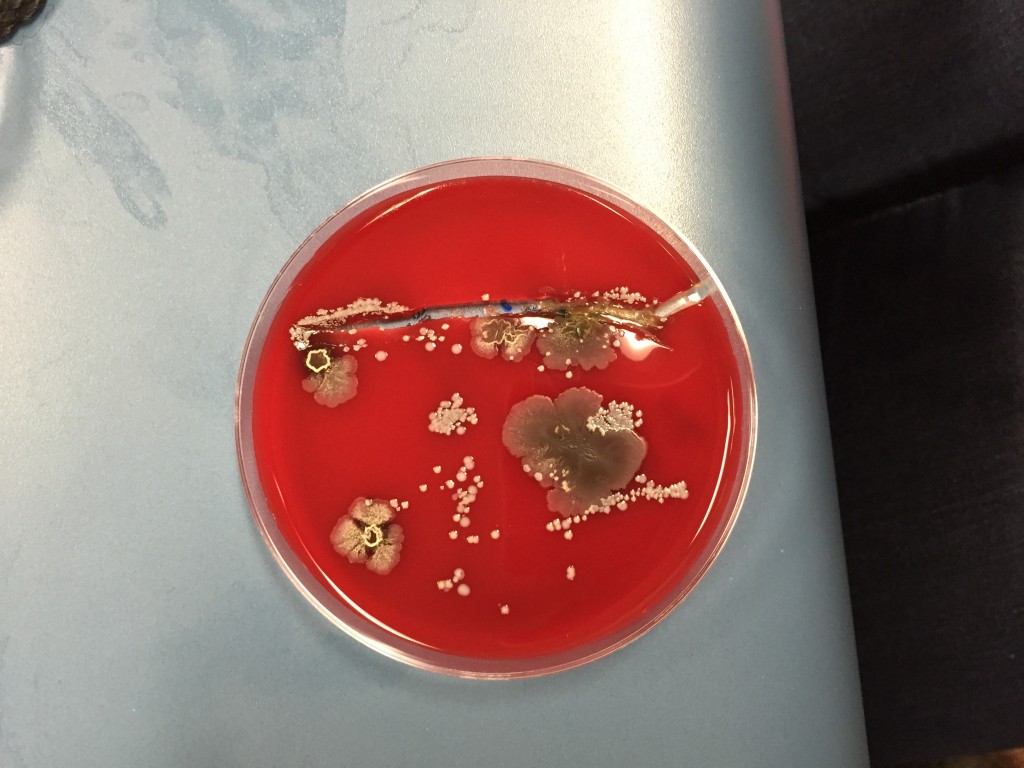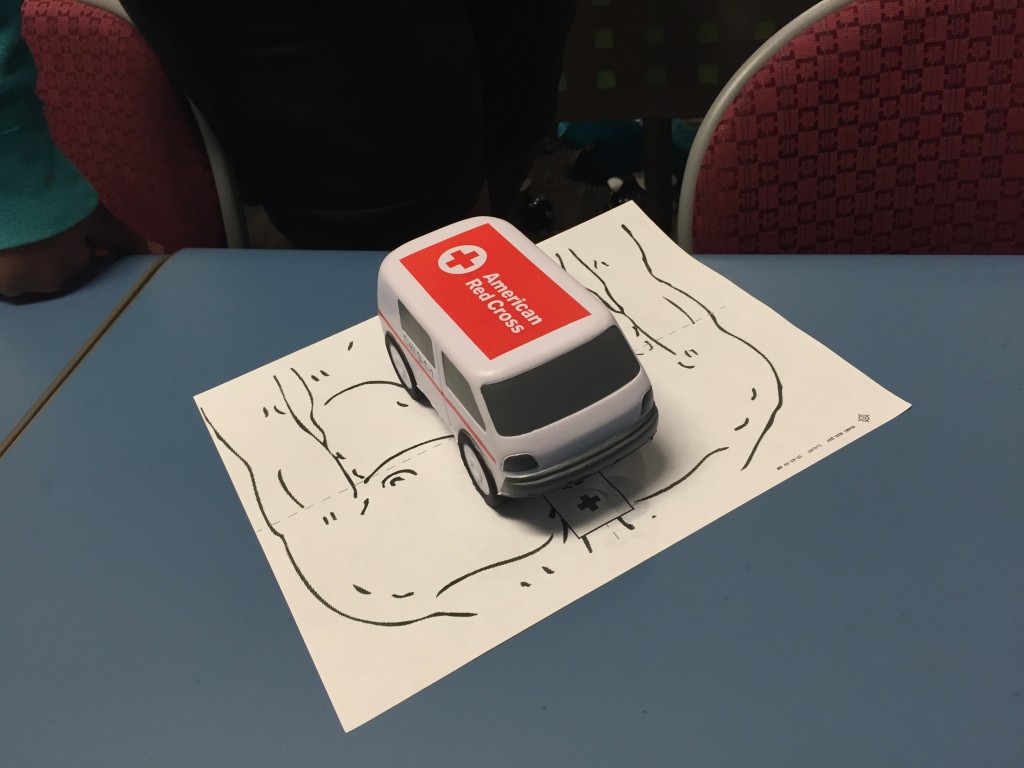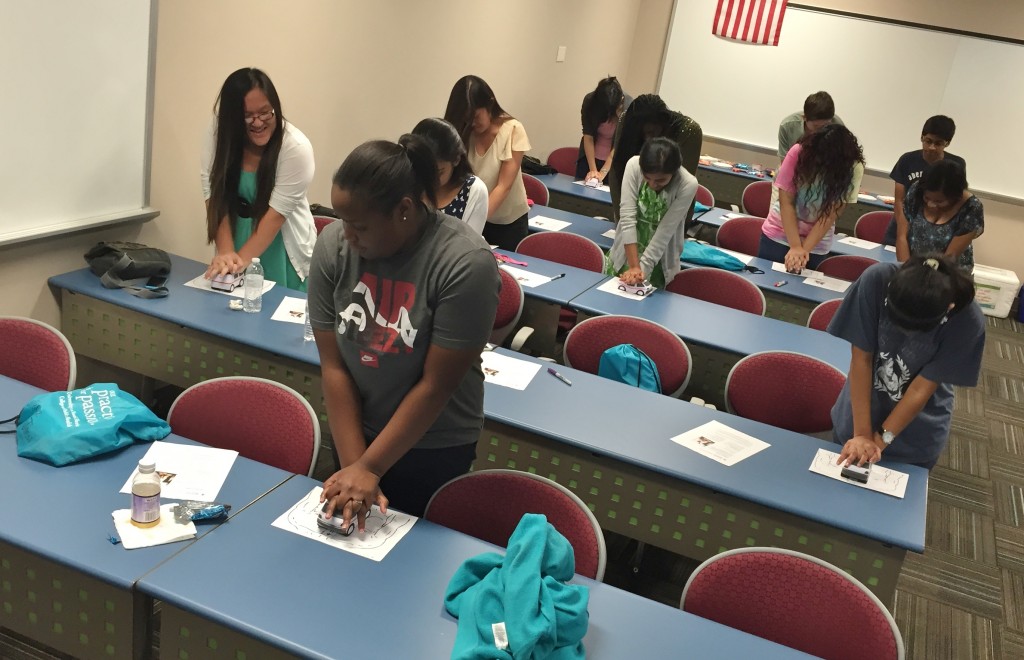USF provides undergraduates with a 360 degree exposure in public health [VIDEO]
The undergraduate public health program at the University of South Florida ranks No. 1 in College Factual’s “Top 10 Veteran-Friendly Public Health Schools” list, which was featured in a Military Times article in June.
However, insiders know that this isn’t the only reason why the USF College of Public Health rocks. From unique courses taught by passionate instructors to summer programs for high school students, this undergraduates come face-to-face with all of the core disciplines in public health.
Save lives with the military, save lives with us
College Factual generated the rankings from a variety of factors when determining the top colleges for veterans pursuing a bachelor’s degree in public health, from veteran-friendly policies to affordability to overall college quality.
USF’s COPH offers the first bachelor’s degree program in public health at an accredited college in Florida’s State University System. The degree in public health provides student-centered courses required for entry-level public health jobs found in government agencies, health corporations, community non-profit organizations and health care facilities.
“When the student veterans become familiar with the College of Public Health, they immediately see the link between what they did in the military and how it is applied to public health courses,” said Kay Perrin, PhD, assistant dean of undergraduate studies at USF’s COPH.
For example, Perrin said, when a student veteran who worked on enhancing clean water and sanitation in a village takes a course in global or environmental health, the student can instantly see the connection between the work they were doing and improved quality of life.
The USF COPH’s support for veterans extends beyond the classroom. The college’s Undergraduate Studies office also organizes events to help student veterans get acquainted with each other outside of the classroom and feel more at home in a university environment.
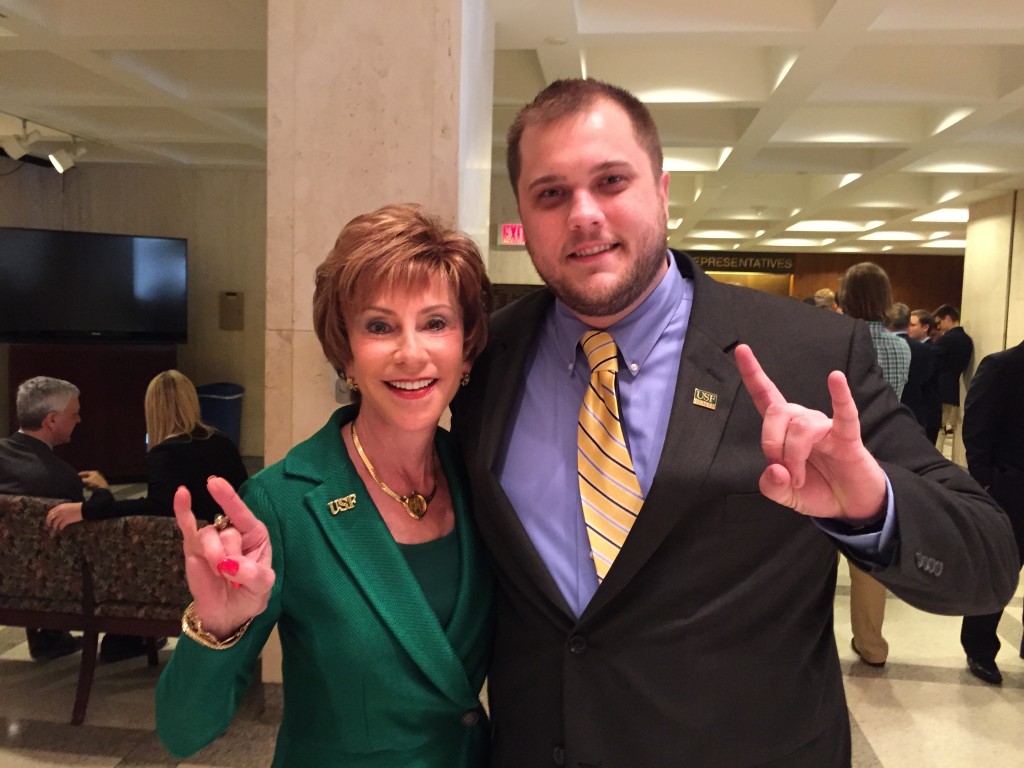
COPH student veteran Joe Close strikes a bullish pose with USF System President Dr. Judy Genshaft. They were in Tallahassee for the 2015 USF Day.
Thanh Le, an academic advisor at the COPH who organizes these meetings, says that these opportunities allow students to connect names to faces, build relationships, express their concerns and difficulties as veterans returning to school and suggest ideas to further improve and support their experience.
The office also provides flexible advising appointment times and coordinates a one-on-one meeting with the associate dean which allows student veterans to connect on a personal level, gain personal assistance, and address any issues or concerns they may have.
More information on the College Factual rankings for veteran-friendly undergraduate public health programs can be found online here.
Undergraduates learn the power of communication
Spring 2015 was Alison Oberne’s first semester teaching Public Health Seminar: Communications in the Digital Age, and to say that it’s not your typical public health course would be an understatement.
In the course, students explored a variety of related skills and developed communication strategies on topics of their choosing, with the proviso that the topics are public health-related.
“The topics they chose really run the gamut, from maternal and child health to mental health to drug use and abuse to nutrition,” said Oberne, who is an instructor in the Department of Undergraduate Studies at the USF COPH.
“My experience in Communications in the Digital Age this semester has been one filled with more creative freedom than I have ever had the opportunity to use in all of my time as a public health major,” said senior Laurie Brutus. “All of our assignments allowed us to focus on developing a communication skill and to demonstrate that skill through different communication media.”
Their methods of presentation were as varied as the subject matter, Oberne said. Students posted speeches to YouTube, tweeted about their topics, and wrote letters to the editor. One student even got her letter to the editor published.
Oberne said that her favorite part of the class was the last assignment, though, where students had to design their own infographic, which is a display that combines graphics, texts and images to convey information easily.
“For example, this infographic is talking about MRSA,” she said while holding up an impressive-looking page. “I’ve talked to the student who created this and encouraged her to talk to residence life to try to promote how to get the message out to the larger student community. I want them to take these skills and see the broader impact.”
“They’re used to writing research papers, so this really put them outside of their comfort zone,” Oberne said. “But they learned so much in the process.”
“The best part about creating an infographic,” Brutus said, “is that you can tap into a different side of yourself and use skills that you may not have been able to find use for in a field full of data and research like public health. I didn’t realize there was a way to blend my love for design and imagery with skills in public health research and writing. Creating this infographic has opened my eyes to a whole new way of disseminating information, changing minds and impacting social change.”
Workforce development course teaches hands-on skills training
“It’s really cool to see students get jobs,” said Laura Rusnak, faculty instructor of Public Health Seminar: Workforce Development.
What makes this class unique is that it focuses solely on developing skills to get students hired. Its syllabus covers topics like resumé-making, interview-skills and networking – things that students have to do, but that they may have never been formally taught.
“It’s all relevant,” she said.
The course entered the rotation a few years ago, but Rusnak modified the material and brought it back for the summer.
“I had to make a lot of changes,” Rusnak said. “I cut away all the fluff, so it’s just stuff. It’s just the things they need to know to do what they need to do.”
Rusnak says that the most important topic the course covered was resumé writing. The students were able to submit a resumé and then receive feedback so they could revise it, sometimes two and three times.
“That was one of the coolest things, to see the progression and how improved they were,” she said. “It’s not just about the resumé, it’s about the skills that they learn: to ask for help and get feedback.”
Another topic covered in the course is how to shake hands. While it seems simple, Rusnak explains that there’s much more to it, and that how you present yourself non-verbally can make an impression before you even open your mouth.
It’s skills like these that are crucial to students getting hired.
“Speaking directly to job acquisition skills is highly needed, and students love it,” Rusnak said.
Typically, the career center offers optional classes or workshops for these types of skills, but before this course there was nothing specific for public health. This course is one of several public health seminars that students are required to take, but technically students could complete their degrees without ever taking the course.
While it might not be strictly required, Rusnak thinks it will be brought back into full rotation.
“We plan to make it available during the spring semester, as well as in the summer semester,” she said. And students agree.
In an anonymous survey of the class, many students voice the opinion that the class should be required.
One anonymous commenter said that the class is one that should be taken for any degree.
“The best class to prepare you for graduating and finding a job,” they said. “This class gives you the tools to succeed.”
Undergraduates demonstrate what to do…
And, what not to do …
Facebook photo gallery of the full hand shaking exercise
Bridging the gap for high school students
Along with making class time as enriching as possible, the USF COPH recognizes the importance of reaching out to the community to help get future students engaged in the field of public health.
And just like the previous two years, this year’s Public Health Summer Institute at the USF COPH did just that.
Dr. Rene Salazar, assistant professor in the Department of Environmental and Occupational Health, directs the program, which began in 2013. The program is open to students across Hillsborough County, and this year many high schools were represented.
“This is an opportunity for them to explore this discipline and the educational and career options available in public health,” Salazar said.
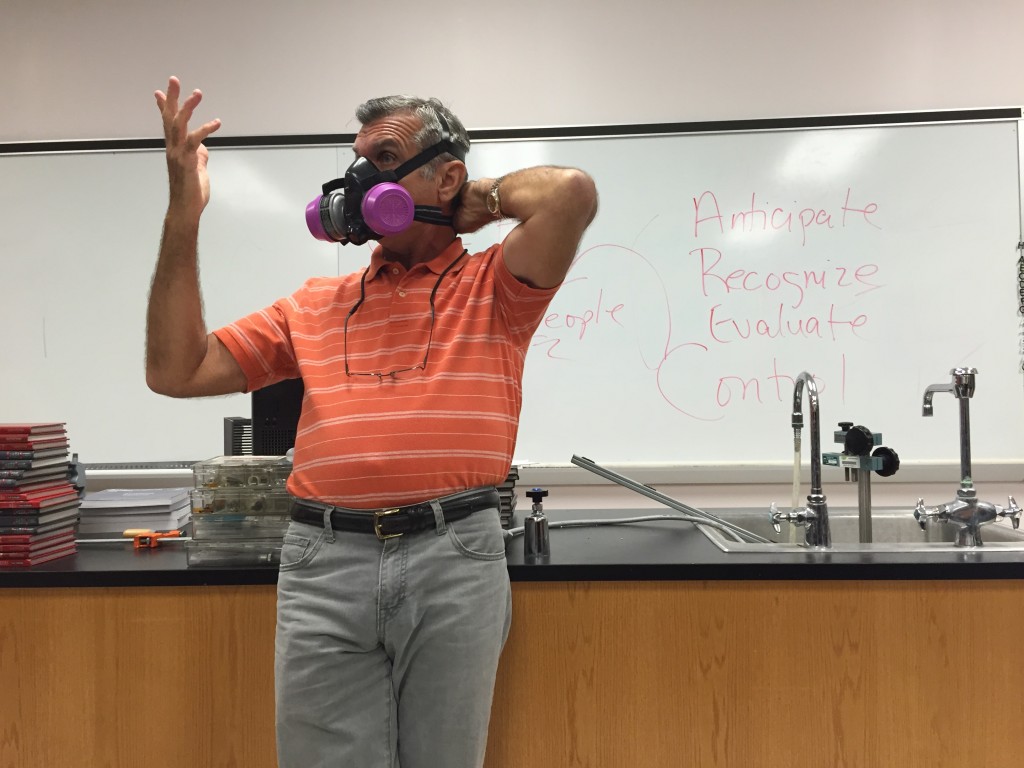
Salazar models some of the protective equipment that industrial hygienists wear when investigating environmental hazards.
Because public health as an undergraduate major is relatively new, the Institute provides many students with first-time exposure to the field of public health.
“I know a lot of us didn’t know what public health was to begin with,” admitted rising Strawberry Crest High School junior Amruta Potdar.
The program is free to students, who are selected from an application process based on good academic standing and a possible interest in health disciplines or public health.
The weeklong program is just in its third year, but it has quickly gained popularity. The first time it ran, there was only one session of 12 students. Since then, the program has more than doubled, from one session with 12 students to two sessions a summer with 14 students. The program runs 9:00 a.m. to roughly 4:00 p.m. Monday through Friday.
In addition, students gain exposure to all the different concentrations within public health as well as an introduction to college life.
“We get up and do things,” Salazar said. “We visit campus safety; we go and visit the medical center; we go and visit the wellness center for students and faculty and staff on campus; we take a tour of main campus.”
Salazar says the culminating event is when the group uses the public transportation system, The Hartline, to travel downtown to the Hillsborough County Health Department. While they’re there, students get a firsthand look at public health in action.
For one of the participants, rising senior Shreya Shivan from King High School, the experience has been eye-opening.
“Public health to me is interesting – where it comes from and where it’s going,” Shivan said. “It’s about how do we keep everybody healthy instead of treating the people that are already sick.”
Shivan said that the disaster presentation was particularly interesting, especially learning about EMTs and the things they do for the community.
“I actually went home and looked into it,” she said. “I might do that in the future.”
Salazar recognizes that not every student will find their home in public health, but the Summer Institute allows them to test the waters.
“This is a wonderful opportunity for high school students, usually rising juniors and rising seniors, to take a look at a discipline that might serve as a very good undergraduate major,” Salazar said. “Even if it’s to show them that public health is not what they want, then I think that we’ve done a service to the community.”
***
Outside of the classroom, the undergraduate curriculum also features multiple opportunities for student research and study abroad. More importantly, all students are expected to practice their passion in the field and begin honing their public health skills as an undergraduate.
This spring, 171 students graduated with public health bachelor’s degrees, bringing the total to 1,038 who have earned their four-year degrees since the undergraduate public health major was established at USF in 2011.
At the graduate level, USF’s public health college offers several master’s degrees as well as a PhD and a Doctor of Public Health (DrPH). Earlier this year, USF’s COPH was ranked 16 in U.S. News and World Report’s list of “America’s Best Graduate Schools.”
Related story:
USF Nursing and Public Health graduate programs ranked among nation’s best
Story by David Brothers and Annamarie Koehler-Shepley, video by Zack Murray, College of Public Health. Photos courtesy of multiple sources.



